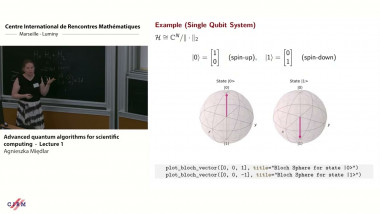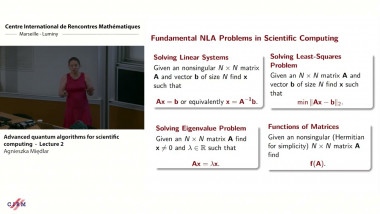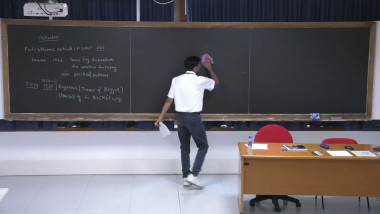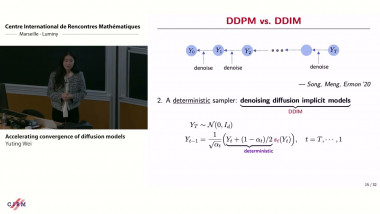Appears in collection : 2019 - T1 - WS1 - Variational methods and optimization in imaging
The steplength selection strategies have a remarkable effect on the efficiency of gradient-based methods for both unconstrained and constrained optimization. In the last years, many challenging optimization problems arising from different domains of applied sciences, such as imaging and machine learning, have been successfully faced with first-order approaches thanks to the design of new adaptive steplength rules. A crucial aspect at the basis of these new rules is the ability to capture low-cost second-order information by exploiting special relationship between the steplengths and the spectrum of the Hessian of the objective function. In this talk, starting from a spectral analysis of popular steplength rules in unconstrained optimization, we introduce some ideas for exploiting the steplength spectral properties in case of gradient projection approaches for box-constrained problems. This study suggests how state of the art steplength rules need to be modified for taking into account the presence of box-constraints. Furthermore, the combination of the new rules with variable metric strategies is also discussed. Numerical results on both randomly generated test problems and imaging applications are reported for evaluating the behaviour of the considered steplengths within gradient projection methods. This is a joint work with S. Crisci, F. Porta and V. Ruggiero.
















